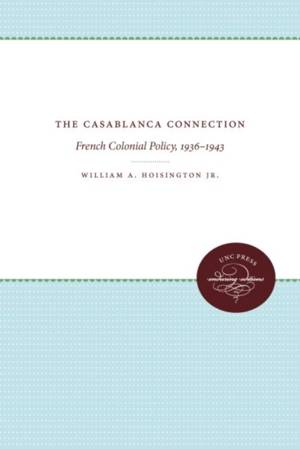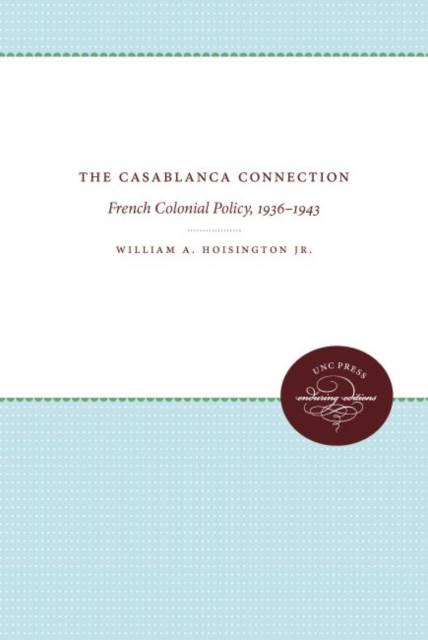
Door een staking bij bpost kan je online bestelling op dit moment iets langer onderweg zijn dan voorzien. Dringend iets nodig? Onze winkels ontvangen jou met open armen!
- Afhalen na 1 uur in een winkel met voorraad
- Gratis thuislevering in België vanaf € 30
- Ruim aanbod met 7 miljoen producten
Door een staking bij bpost kan je online bestelling op dit moment iets langer onderweg zijn dan voorzien. Dringend iets nodig? Onze winkels ontvangen jou met open armen!
- Afhalen na 1 uur in een winkel met voorraad
- Gratis thuislevering in België vanaf € 30
- Ruim aanbod met 7 miljoen producten
Zoeken
€ 72,95
+ 145 punten
Omschrijving
The Casablanca Connection examines France's colonial policy in Morocco from the Popular Front to the end of the Vichy regime in North Africa, relating it to overall French imperial policy and placing it in a European and world context. At the center of this study is General Charles Nogues, resident general of Morocco from 1936 to 1943, who, during this period, provided the protectorate with purpose, authority, direction, and continuity. Nogues restored the precepts of colonial rule established in Morocco twenty-four years earlier by Marshal Hubert Lyautey, France's most illustrious soldier-administrator. Nogues's accomplishments made Morocco stronger for France than it had been in a decade. This "French peace," however, was disturbed by the Spanish Civil War and World War II, and Nogues's well-intentioned but misguided decisions during this time ended his career amidst charges of collaboration and anti-Allied sentiment. Nevertheless, William A. Hoisington Jr. argues, Nogues had interpreted Lyautey's lessons with talent and originality.
Originally published in 1984.
A UNC Press Enduring Edition -- UNC Press Enduring Editions use the latest in digital technology to make available again books from our distinguished backlist that were previously out of print. These editions are published unaltered from the original, and are presented in affordable paperback formats, bringing readers both historical and cultural value.
Originally published in 1984.
A UNC Press Enduring Edition -- UNC Press Enduring Editions use the latest in digital technology to make available again books from our distinguished backlist that were previously out of print. These editions are published unaltered from the original, and are presented in affordable paperback formats, bringing readers both historical and cultural value.
Specificaties
Betrokkenen
- Auteur(s):
- Uitgeverij:
Inhoud
- Aantal bladzijden:
- 336
- Taal:
- Engels
Eigenschappen
- Productcode (EAN):
- 9781469654621
- Verschijningsdatum:
- 1/05/2019
- Uitvoering:
- Paperback
- Formaat:
- Trade paperback (VS)
- Afmetingen:
- 152 mm x 229 mm
- Gewicht:
- 494 g

Alleen bij Standaard Boekhandel
+ 145 punten op je klantenkaart van Standaard Boekhandel
Beoordelingen
We publiceren alleen reviews die voldoen aan de voorwaarden voor reviews. Bekijk onze voorwaarden voor reviews.











